Welcome
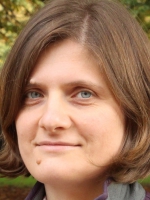
Our program this year also demonstrates the blurring of boundaries between documentary and animation, which were worlds apart just a few years ago. Nowadays they join forces to create new hybrid forms that provoke, surprise, and stimulate the imagination in an effort to depict reality. Verzio 11 features a rich harvest of over 60 documentaries from all over the world. They were made with passion and commitment, and we hope they impact the audience. Over the coming festival days you will travel across the globe; discover the multicultural treasures of India; meet Hungarians in different parts of the world; gain insight into the waves of protests in Ukraine, Romania, the Arab world, and the United States; face the consequences of nuclear energy use; and learn about the possibilities and dangers of the digital universe.
Our world is in flux. Let’s stay focused.
Oksana Sarkisova, festival director
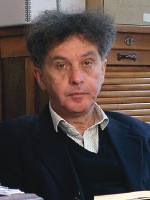
A Documentary filmmaker sometimes arrives at a location, which is not (yet) a scene; it is not the scene of a revolution, torture, or ethnic cleansing, it is not the scene yet but just a location. And in the course of recording what is happening there, what looks like first as just fight, cruelty or violent acts taking place randomly, without a premeditated plan, gradually solidifies in the perception of the cinematographer into an object, a notion, a nameable category: ethnic cleansing, genocide, sexual slavery, war of independence. The viewer is able to follow the process whereby the object of the film emerges.
On other occasions, the sequence of the documentary work is the opposite: the filmmaker proceeds like a social scientist, a forensic investigator, or a writer, who tries to reconstruct the events that lead to the (found, identified, named) object on the scene: to colonization, or liberation, radical feminism, dissent, or to genocide. The film is a sort of reverse engineering; the effort aims at disassembling the object, in order to show how the seemingly random, and sometimes insignificant acts brought the abstraction, the object of analysis about.
The documentary filmmaker may decide to go on by showing the suspended, barely visible particles that make up the dark sky, or to focus on the grey clouds that hide the sun. We, lay humans, are able to see only the visible mass that darkens the sky. The clouds, however, that cast a shadow on the life beneath, are always different; their form is defined by the unique constellation of liquid droplets or frozen crystals that could be detected only by special equipment, by a particular competence. In order to enable us to understand the unique, always specific situation, it is not sufficient for the filmmaker to show the abstract, although nameable, object, but the particular, simple, barely visible acts that – sometimes without, or even against, the will of the actors – give births, so often, to monstrosities.
István Rév, director, Open Society Archives
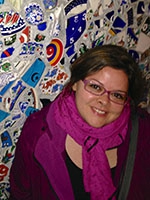
In 2004 the very first Verzio Film Festival was opened by a man who inspired us for decades with his life, words, and deeds: Árpád Göncz (1922 –2015), Hungary’s first democratically elected head of state. Twenty years ago he said the following: We cannot, however, make concessions where the protection of those whose human rights are violated is at stake. There is no external advantage for which we can abandon our fellow human beings. When human dignity is denied we must protest with all our strength. For we cannot bear the violation of the human dignity of others; and it harms our own dignity if we could have done something but had reconciled with the intolerable. We must protest so that a rights violation counts as a violation. So that it is understood: we have human rights. We consider it our duty to make Árpád Göncz’s legacy resonate with future generations. Verzio wants to be the voice that counts. The voice that shouts violation, the mirror that shows the “flickering truth”, the eye that sees human dignity –be it in a dusty film reel, a forbidden song, a quiet conversation or a refugee love story.
Anikó Kövecsi
Managing Director
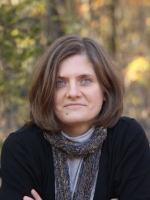
Among the novel features of the festival this year is the Student Competition ZOOM IN. By presenting and discussing the works by the young generation of filmmakers, we would like to survey important new directions in documentary cinema as well as stimulate an exchange of experiences. The student films will be evaluated by a Jury made up of internationally renowned film professionals, whose feedback will be of additional value to the participants. Verzio Student Jury, selected on a competitive basis, will award the Best Human Rights Film Award at Verzio. We are happy to welcome the Nuremberg International Human Rights Film Festival as our guest this year that will present a variety of cinematic approaches to telling powerful stories of the past and present. A selection of award-winning films in our joint program highlights the diversity of human rights issues from the traumatic European past (Every Face Has a Name, My Mother , A War and Me) to exploring the anti-corruption campaign in Guatemala (The Burden of Peace) and anti-globalist resistance in Burkina Faso (The Siren of Faso Fani). In addition to the screenings, the exhibition, Frozen Conflicts by the Belgian photographer David Verberckt, explores post-Soviet spaces marked by memories of recent wars, for a visual expression of the lasting traumas of violent social and ethnic conflicts. While the program abounds with films touching on dramatic issues, it aims at sending the message of hope and empowerment, which is most compellingly expressed in the festival's closing film, How to Change the World. Tracing the emergence of the largest environmental organization that was originally powered by a small group of like-minded enthusiasts shows that the world is not ruled by supra-human powers, but can be changed by those with motivation and a strong vision. Inviting you to face the world full of injustices and conflicts, Verzio calls you to watch, talk, and act in order to make your vision of a more human future come true. Have a good festival!
Oksana Sarkisova
Festival Director
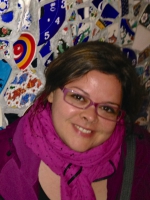
From the initial dedicated crowd of a few thousand, Verzio's last edition attracted close to seven thousand people to cinemas throughout the city of Budapest. Over the years, the program was enriched with a Doclab for documentary professionals, master classes, conferences, photo exhibits, a student jury, a free Re-Verzio Best of spring series and many other interesting programs to further engage both the audiences and the filmmakers. Verzio films live on in the OSA collections and are available for research and educational purposes (www.osaarchivum.org).
Thanks to all the critical thinkers who have joined us over the years, those who are coming for the first time, and everyone who has supported us and sent us their films. In the spirit of continuing the dialogue on human rights in Hungary, I wish you all a meaningful, challenging, uplifting, thought-provoking and above all a fun festival.
Anikó Kövecsi, managing director
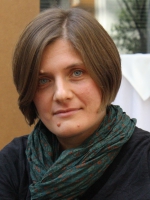
Memory, its nature, texture, and workings is a subtle thread of this year's program. Starting from a deeply moving investigation into the mind of the poet who parts with his memory in First Cousin Once Removed, it runs in a variety of engaging ways across the program, connecting happy and traumatic personal memories in The Bastard Sings the Sweetest Song, Entangled, A World Not Ours, and The Imposter, to the broader questions of the memory of the Holocaust, mass murders, memories of dictatorships, but also of resistance and courage. The "Homage to Chris Marker," one of the most enigmatic figures in 20th-century filmmaking, expands further on the theme of memory, highlighting filmmakers’ long-lasting entanglement with politics and the ongoing creative reinterpretation of the possibilities of visual media per se.
Our anniversary edition presents a colorful collective memory mosaic which exemplifies a diversity of ways and means of telling stories. Photographer Dorothea Lange called the camera an instrument that teaches us how to see without a camera. Watching other people’s stories, we also learn how to see and remember our own lives.
Oksana Sarkisova
Festival Director
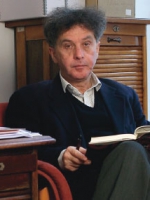
In a typical case, however, the people whose life and sufferings and death are chronicled in film, quite often in the most graphic way, are not asked to sign a privacy agreement; in most cases they are not even aware of the nature of the undertaking; they do not notice that their life is being recorded; they are unaware that they are exposed, defenseless, vulnerable, naked, in a physical or psychological sense. In the world of Facebook, we are getting used to the face of intrusion into one’s privacy; the most intimate moments of life have a concrete face attached to them on the computer screen. Staring at the large movie screen, in the company of unknown others, we nevertheless still have a different and uncomfortable feeling: as opposed to the mostly spontaneous-looking videos on the internet, the documentary is associated with calculation, careful and purposeful editing.
Surprisingly, even in the case of a feature film—like Michael Haneke’s Amour, when watching the painful progressive physical and mental deterioration of the protagonists, even despite the full knowledge that we see two excellent actors, that both Jean-Louis Trintignant and Emmanuelle Riva gave their full consent, and received huge honoraria for their performance—we feel unease, sometime shame, while peering into the most intimate aspects of their life. First Cousin Once Removed, the opening film of the 10th Verzio Festival, not a feature film but an auteur-documentary, chronicles the renowned poet Edwin Honig’s descent into Alzheimer’s disease. The filmmaker, who was related to the protagonist, had received permission from the poet at the beginning of the multi-year filming process, when Honig was still lucid. The result is a harrowing and beautiful work on basic questions of life and death, of depths where strangers, audiences, perhaps, should not be allowed to descend.
We are slowly getting used to the situation where we live in the middle of an ongoing reality-show, a permanent documentary, where everything and anything happens and can happen in front of our eyes in real time. Nobody asks for permission, nobody grants consent, we never read the terms of service, we do not know what terms and conditions may apply. Nonetheless, it is not difficult to make a case that we are humans in part because we are able to distinguish between internal and external, private and public; things that we should keep for ourselves even when they might be the concerns of others as well. To watch serious films about the transgression of this borderline may, paradoxically, enrich us: we argue with ourselves, trying to reconcile our curiosity with our sense of shame, and might learn what not to show and not to watch, and that sometimes the most appropriate gesture is to look the other way.
István Rév
director of OSA Archívum
